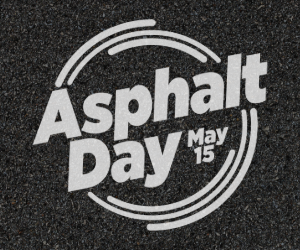 We talk with leading educators in the field of asphalt technology in an effort to connect with academia on important industry issues.
We talk with leading educators in the field of asphalt technology in an effort to connect with academia on important industry issues.
Dr. Bill Buttlar, PhD is the Glen Barton Chair of Flexible Pavement Technology at the University of Missouri-Columbia and Director of the Mizzou Asphalt Pavement and Innovation Laboratory (MAPIL).
What drew you to engineering and transportation?
To be honest, I started in nuclear engineering at Penn State, but quickly switched to civil engineering, with an emphasis in structures and materials. I loved physics and mechanics, but was not overly fond of chemistry. My interests in timber bridges eventually led to my fascination with asphalt. Both materials have interesting time-dependencies and complex microstructures that make them fun to study. My work in asphalt started with binder research with Dave Anderson, Raj Dongre, Hussain Bahia and Don Christensen. My PhD studies were with Rey Roque on the SHRP A-357 project, developing the Superpave IDT.
Is the paving industry embracing new non-destructive testing methods?
I’ve worked on two NDT methods in conjunction with Professor Henrique Reis at the University of Illinois: an Acoustic Emission (AE) Embrittlement Analyzer and a Non-linear Ultrasonic Damage detection method. The AE test uses piezoelectric sensors to listen for micro-crack development in a binder bonded to a substrate or in a compacted mixture sample. It is a convenient tool for characterizing the embrittlement threshold for complex modern mixtures, such as those containing RAP or RAS. The ultrasonic test has found good application in assessing the efficacy of rejuvenators in restoring crack resistance and healing, whether applied to road surfaces or used in the mix production process.
Can advancing technology improve pavement simulation software and cracking prediction?
A completed National Pooled Fund Study (#776) led to the modernization of the Superpave thermal cracking model (TC-MODEL) into a new model, called ILLI-TC, which utilizes fracture data from the DC(T) test and creep data from the IDT, along with an improved, finite-element based modeling engine to make accurate thermal cracking predictions. We are currently developing a simple method to obtain creep data with the DC(T), so that ILLI-TC can be run with data coming from a single test device. We are also working in collaboration with Professor Glaucio Paulino at Georgia Tech to develop more accurate and sophisticated cracking models, to capture 3D cracking patterns considering complexities such as damage, healing and material rate and stress dependence.
What challenges might asphalt producers face with the growing popularity of smart pavement?
At first, there may be challenges associated with placing sensors, wires, photovoltaics or other electronics in new or existing pavements. However, truly smart solutions will minimize these intrusions, for example, by implementing battery-free, wireless sensors such as the work we are doing in collaboration with Michigan State and St. Louis University, who invented this technology. In addition, we are conducting work to collect and fuse big data sets emanating from existing fixed and moving sensors, i.e., cameras and other sensors on overhead infrastructure and accelerometers and GPS data in vehicles and in smart phones. In the end, producers should benefit from having immediate access to response and performance data emanating from and streaming to the cloud from the facilities that they build.
Where should today’s students focus their asphalt research?
Some hot topics and societal challenge areas include: crack mitigation, enhanced recycling, sustainability and automated/intelligent production and construction. It is important for students to take courses outside of their core area of interest and to develop their innovation skills and outside-of-the-box thinking. We’ve equipped our labs with high-tech tests, digital displays and collaboration areas to foster interdisciplinary research starting at the undergraduate level. The ‘I’ in MAPIL lab stands for Innovation. I firmly believe that fostering innovation in our lab is critical for attracting the best minds to our challenging and rewarding field.














